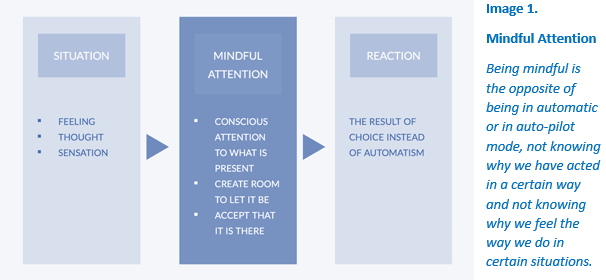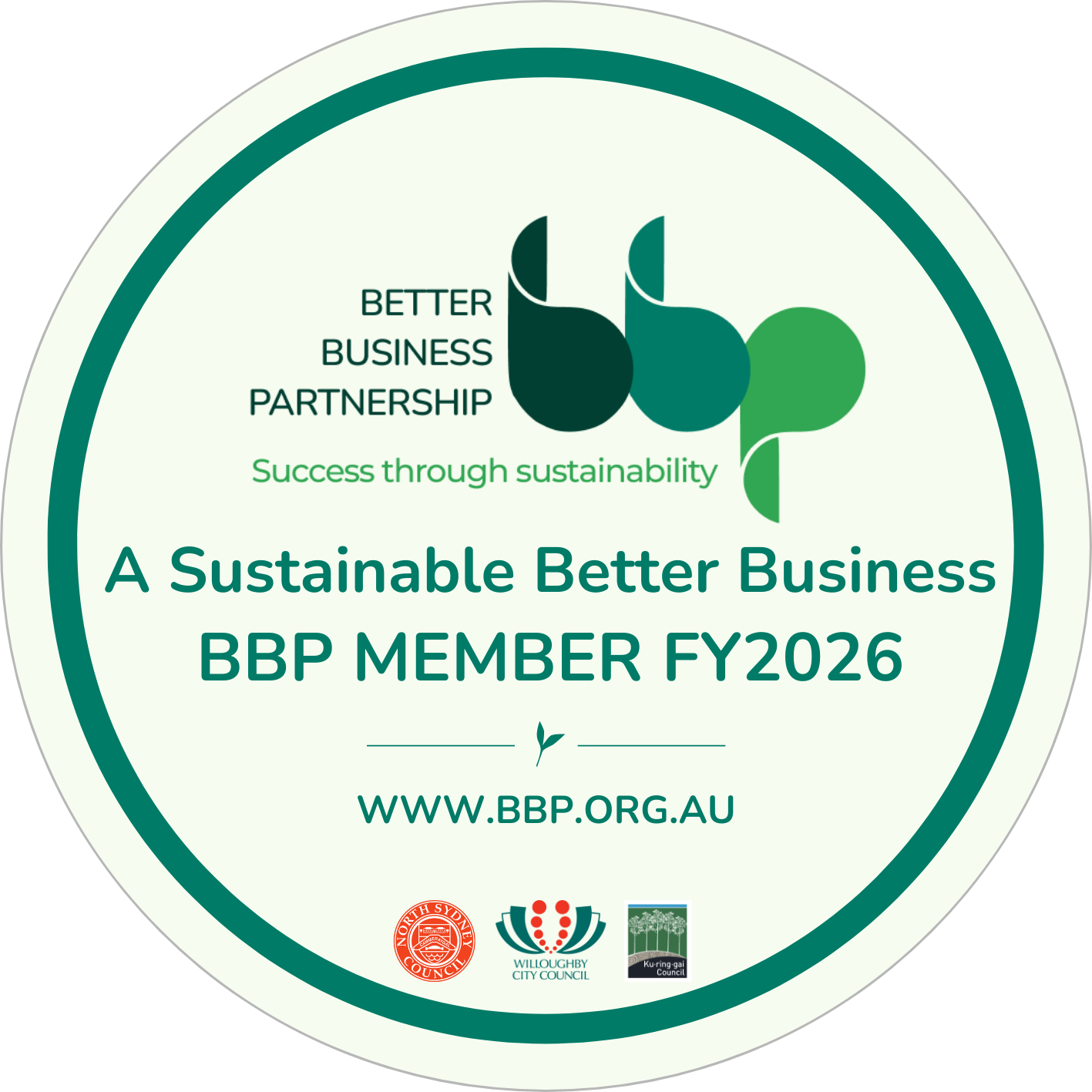Should You Include Mindfulness in Leadership Development? Yes, but it Depends…
Published: Sep 14, 2017

Leading in turbulent times is the new paradigm of the 21st Century, placing unprecedented demands on leaders. The magnitude and speed of changes are unprecedented, including the emergence of the Age of Automation; all of which emphasises the need for alternative, more relevant and adaptive approaches to leadership development.
This is evidenced by the sky-rocketing levels of stress, anxiety and related physical ailments among executives (and the population at large). We all know how these affect behaviours.
The focus of effective leadership programs is on changing leaders’ mindsets and behaviours, as shown in a recent McKinsey study. Change is best achieved through person-centred, customised methods such as executive or leadership coaching, which help develop targeted leadership capabilities and align behaviours and mindsets with the organizational culture.
However, it can often be difficult for executives to be aware of how and why they act in a certain way, further exacerbated by stress. Cultivating mindfulness reduces stress and facilitates greater self-awareness. With the right professional support and practice, the person can then choose more appropriate behaviours. Because of this, mindfulness is viewed by experienced executive coaches as a key enabler of effective leadership behaviours.
Unfortunately, many people are still unclear about what mindfulness is, how it contributes to overall wellbeing and specifically, how it enhances leadership performance. In recent times, the media has questioned the effectiveness of generic training programs and tools such as apps, and whether mindfulness works for everyone.
Such concerns would no-doubt prompt executives, HR and business leaders to ask, “should I include mindfulness in leadership development?”
What is Mindfulness?
In the last two decades, the concept of mindfulness as a state, trait, process, and intervention has been successfully adopted into clinical health, positive psychology and coaching contexts. Its main application is in stress management and improving emotion regulation.
Mindfulness is quite a complex and ancient concept found in a wide range of spiritual practices hence, there are many definitions. This article focuses only on the scientific, secular context.
The most prominent person in bringing mindfulness into mainstream medicine and psychology is Jon Kabat-Zinn, Professor of Medicine Emeritus at the University of Massachusetts Medical. Kabat-Zinn developed the well-respected Mindfulness-Based Stress Reduction (MBSR) treatment program for stress, anxiety and depression.
Mindfulness is a temporary state of being aware and attentive to what is taking place in the present, non-judgementally and non-reactively.
In 2012, medical experts and neuroscientists D.R. Vago and D.A. Silbersweig published a framework on the physiological mechanisms of mindfulness with the view to operationalising it. They proposed a comprehensive neurobiological framework to guide the next phase of major scientific breakthrough into the neurocognitive mechanisms activated during an intentional mental strategy like mindfulness.
It is worthy of mention that any research involving the brain is exceedingly difficult due to limitations in scientific (neural imaging) laboratory equipment. The most powerful at present is functional magnetic resonance imaging, or fMRI, which measures brain activity by detecting changes associated with blood flow.
Scans have shown that a mindfulness intervention activates the parts of the brain associated with acquiring knowledge including insight, reasoning, awareness and intelligence. However, such scans do not establish causality and further research is required.
Nevertheless, it is encouraging to know that we are getting closer to understanding how mindfulness works physiologically.
As a result of their 2012 study, Vago and Silbersweig described mindfulness as a temporary state of being aware and attentive to what is taking place in the present, non-judgementally and non-reactively.
Basically, when we shift our attention inward without any judgement or interpretation, we can become aware of our thoughts, feelings and actions. We can also shift our attention externally and become aware of what is truly happening around us.
Why Cultivate Mindfulness?
While we are still discovering the exact physiological mechanisms engaged in mindfulness, numerous studies have demonstrated its positive impact on human wellbeing – mental and physical. This applies to both the clinical (mental or physical health issues) and the non-clinical (no mental or physical health issues) populations.
Indeed, studies have shown that cultivating mindfulness helps in the development of several crucial skills for human peak performance.
a. Self-reflection and Self-awareness
R.M. Ryan and E.L. Deci stipulated in their 2017 book Self-Determination Theory: Basic Psychological Needs in Motivation, Development, and Wellness that mindfulness relates to people’s capacity to openly attend to current internal and external experiences. By not judging the experience and simply accepting it, we are able to calmly reflect on who we are as individuals and develop a deeper awareness of what makes us tick.
b. Self-regulation
The first step toward an “organized mind” is to tame our negative emotions daily. Having the capacity to better understand why we do what we do and why we feel the way we feel can be incredibly empowering. This is because once we are aware of unhelpful thoughts and emotions, we can consciously choose a more helpful and positive course of action. In other words, we can appraise and therefore self-regulate adaptively.
c. Positive relationships
When we are aware of how our thoughts and emotions drive our behaviours, and can reflect, consider and adopt more helpful or positive thoughts, our behaviours will also become more helpful and positive. This will in turn have a positive impact on our personal and work relationships. As people, notice a less reactive and calmer behaviours in us, the quality of our relationships will improve. Our social network will inevitably expand in a more meaningful way, which leads to greater emotional wellbeing.
d. Competence
Mindfulness allows people greater insight, self-awareness and the self-reflection necessary to ensure that their behaviours are congruent with their values. This is incredibly important in coaching because clients are then able to select values-based and holistic goals. And with improved self-reflection and self-awareness, they can identify the most effective pathways to achieve their goals, leading to improved confidence and competence.
e. Reduce the negative effects of stress
Mindfulness practice can reduce stress and its damaging effect on the body therefore it has sparked a growing interest in its influence on the immune system and disease risk. There is evidence that mindfulness may dampen the activity of genes associated with inflammation – essentially reversing molecular damage caused by stress. It is early days however the research looks promising so far.
Why Mindfulness and Leadership Coaching?
We are no longer looking at leading “from turbulence to stability”. Leading in turbulent times is our new paradigm, as poignantly warned by Jorrit Volkers, Dean of Deloitte University (EMEA) and Conference Chair at the 19th International Leadership Association’s Global Conference 2017.
Even the most experienced leaders are finding it increasingly challenging to perform sustainably in today’s VUCA (volatile, uncertain, complex and ambiguous) workplace.
Leading in turbulent times is our new paradigm
Research suggests that 30-50% of senior leaders are pushed out, fail or quit within 18 months of a new appointment. Examples of new appointments include divisional or international transfers, changes from an M&As, internal promotions and external hires.
While the reasons are unique to the individual’s circumstances, the underlying themes are mostly linked to working in today’s VUCA environment. This was certainly implied by studies from The University of Sydney showing that a large percentage of executives seeking coaching are experiencing high levels of stress and anxiety.
It has long been established that high levels of stress and anxiety are detrimental to performance and wellbeing (individual and organizational). As such, coaches need to apply interventions which seek to effectively reduce stress and thereby improve performance.
In coaching, when we talk about cultivating or eliciting mindfulness, it is about the coach facilitating the creation of an environment of awareness and attention in the present moment.
As explained in the academic textbook The Complete Handbook of Coaching edited by E. Cox, T. Bachkirova and D. Clutterbuck in 2014, for the coach to develop these skills it takes training and years of practice.

Cultivating mindfulness in leadership coaching has been shown to improve performance by contributing to several areas:
1. Listening skills
The leadership coach facilitates a calm and curious focus of attention on a client’s state of well-being throughout the coaching program. This improves the listening skills of both coach and client.
2. Less reactive
Mindfulness helps clients become less reactive to ups and downs of change, be more curious and objective, and be more self-aware and self-reflective on what is working or not (refer to a, b & c above). Clients have the mental space to be pro-active.
3. Goal achievement
Coaches help bring mindful attention to the client’s motives and goals, ensuring alignment with the client’s values thereby increasing motivation and likelihood of goal achievement (refer to d).
4. Cognitive & emotional agility
Once the client’s self-awareness and self-reflection have been expanded, the coach can then foster cognitive and emotional agility. This can be achieved in many ways and typically include learning conversations about psychodynamics and how emotions, thoughts, behaviours and the environment interact.
5. Emotional intelligence
Once cognitive and emotional agility are developed (refer to 4.), the coach can facilitate nuanced interventions to help the client manage his/her emotions, and the emotions of others. That is, emotional intelligence is enhanced.
6. Sense-making capability
Cultivating mindfulness also assists clients in making sense of experiences and connect the dots i.e. it aids in building sense-making capacity – a key leadership capability.
7. Perspective-taking capacity
In addition, when a client can observe a situation dispassionately, multiple perspectives become evident with greater ease, enabling him/her to make more balanced decisions.
Does It Always Work?
Unfortunately, many unknowing mindfulness practitioners, aided by mainstream media, have created the image of someone in the lotus position as representing mindfulness. An unconscious negative bias against meditation could hinder a client’s willingness to engage in in a mindfulness intervention, let alone build a habit.
Mindfulness is not a religious or spiritual practice, and it is not a synonym for Yoga or other religious meditation. It is very important for mindfulness to introduced as a secular practice based on scientific research. This is especially important when having conversations about mindfulness in the corporate world, especially in the evidence-world of Science, Technology, Engineering and Mathematics (STEM).
Coaches need to take into consideration the client’s preferences and jointly explore different techniques like guided breathing and guided journaling, among other mindful practices.
More importantly, mindfulness should not be introduced in coaching if the leader has a physical or mental health history that may lead to his/her condition worsening. It is therefore crucially important for:
- The client should be screened and if needed, referred to a healthcare professional.
- Leadership coaching should be delivered by a highly experienced and qualified coach.
- The client should be encouraged to use material (and watch videos) that are scientifically grounded. When in doubt, ask the coach.
Putting it all together
Mindfulness can be a key enabler in the development of effective leadership behaviours hence, it is cultivated throughout leadership coaching programs.
Mindfulness helps in the development of several crucial skills for human peak performance such as self-awareness, self-reflection, self-regulation, positive relationships, competence and physical/mental health.
When skilfully incorporated into leadership coaching programs, leadership performance will increase as a result of improved listening skills, cognitive/emotional agility, goal achievement, emotional intelligence, sense-making and perspective-taking capacity.
Mindfulness should therefore be included in leadership development if it is part of a carefully designed and managed leadership coaching program by an experienced executive coach who will ensure proper screening and monitoring of potential health issues.
About the Author:
Recent Articles
- Elevating Science-Based Leadership in Every Boardroom Oct-24-2022
- Narrative Coaching for Planetary Health Oct-03-2022
- Emotional Intelligence: The Key to Exceptional Leadership Jan-31-2022
- A Year in the Life of a Leadership Coach Dec-15-2021
- How to Develop Self-Knowledge and Why it Matters Aug-23-2021














